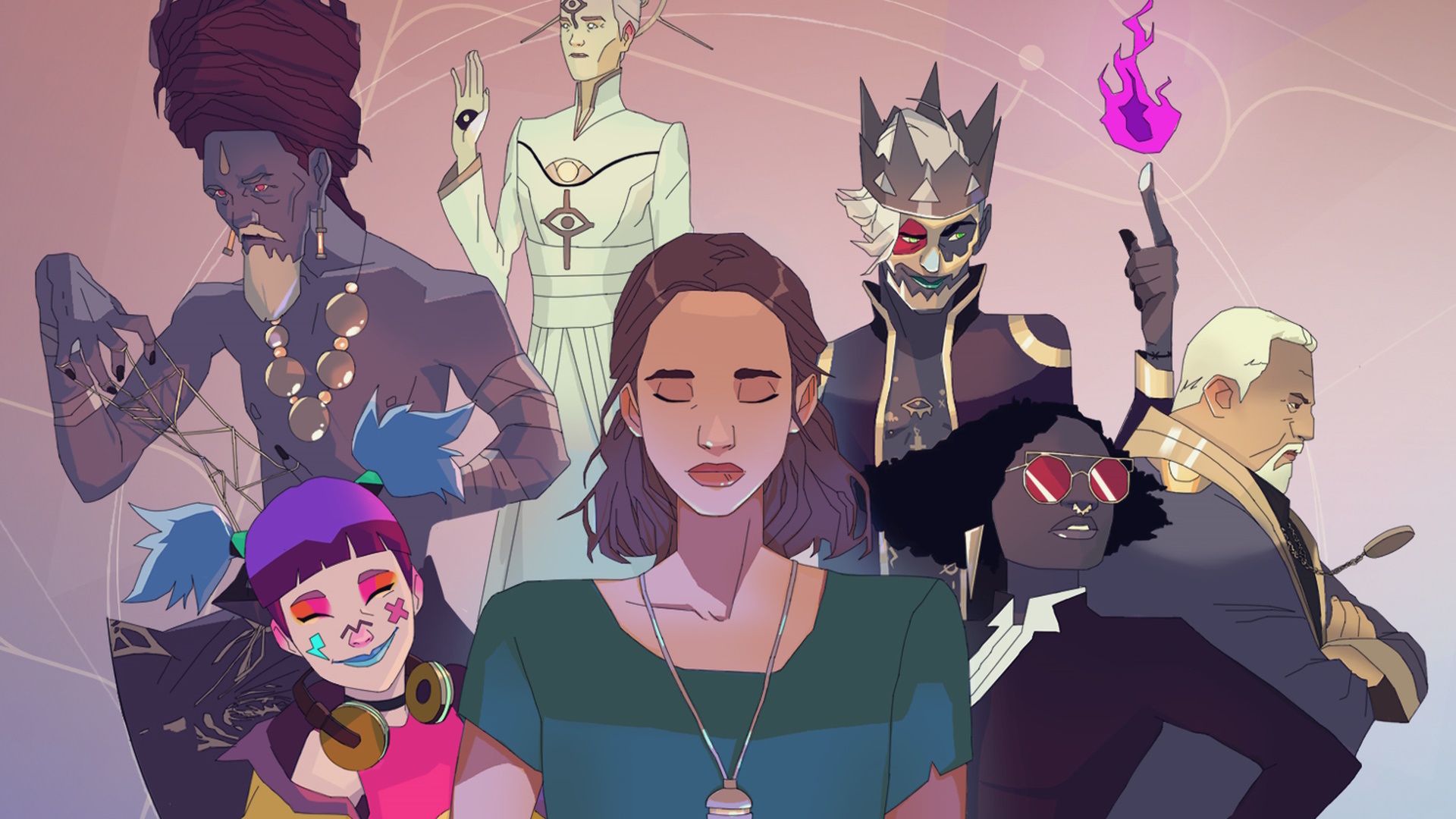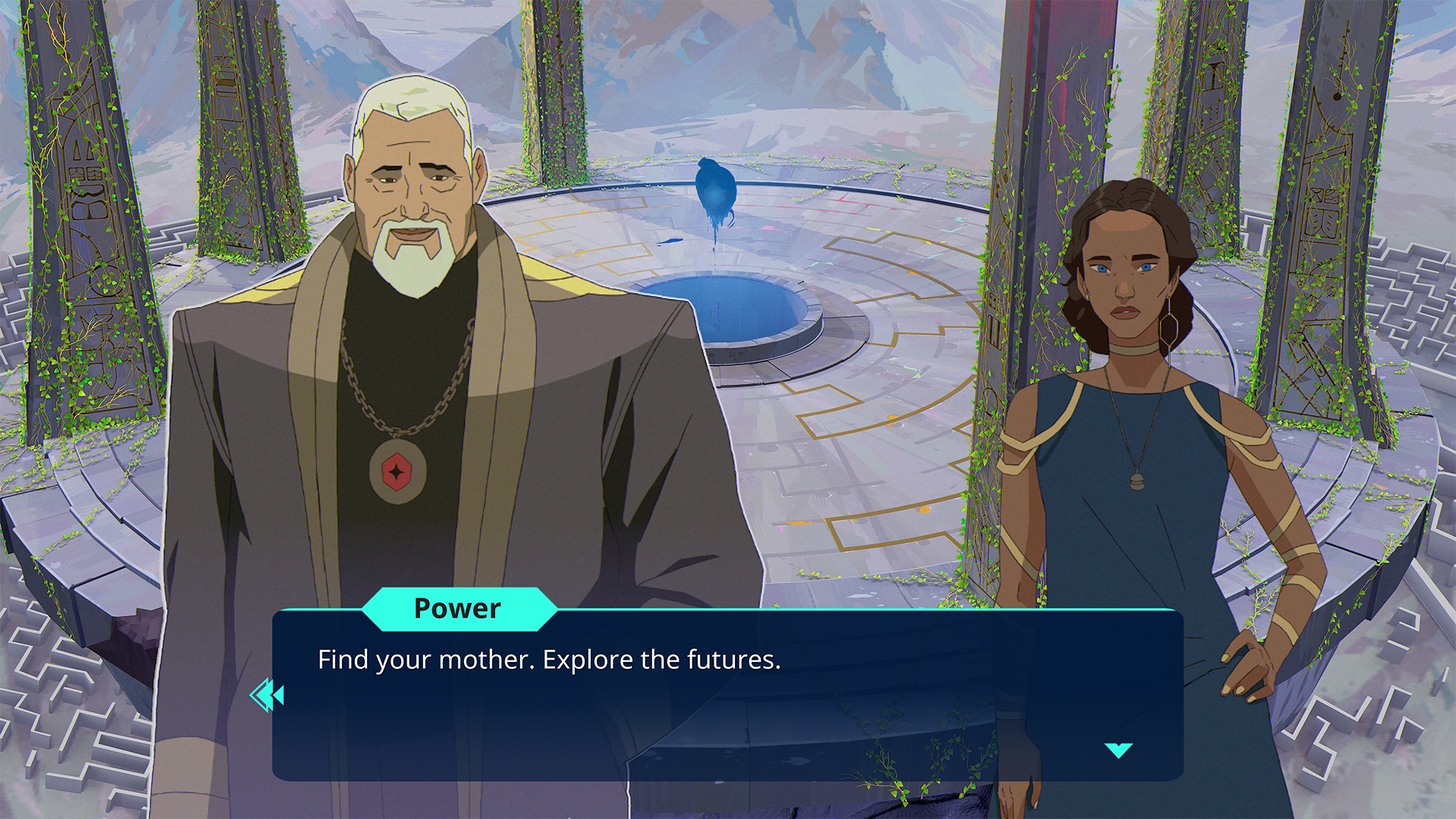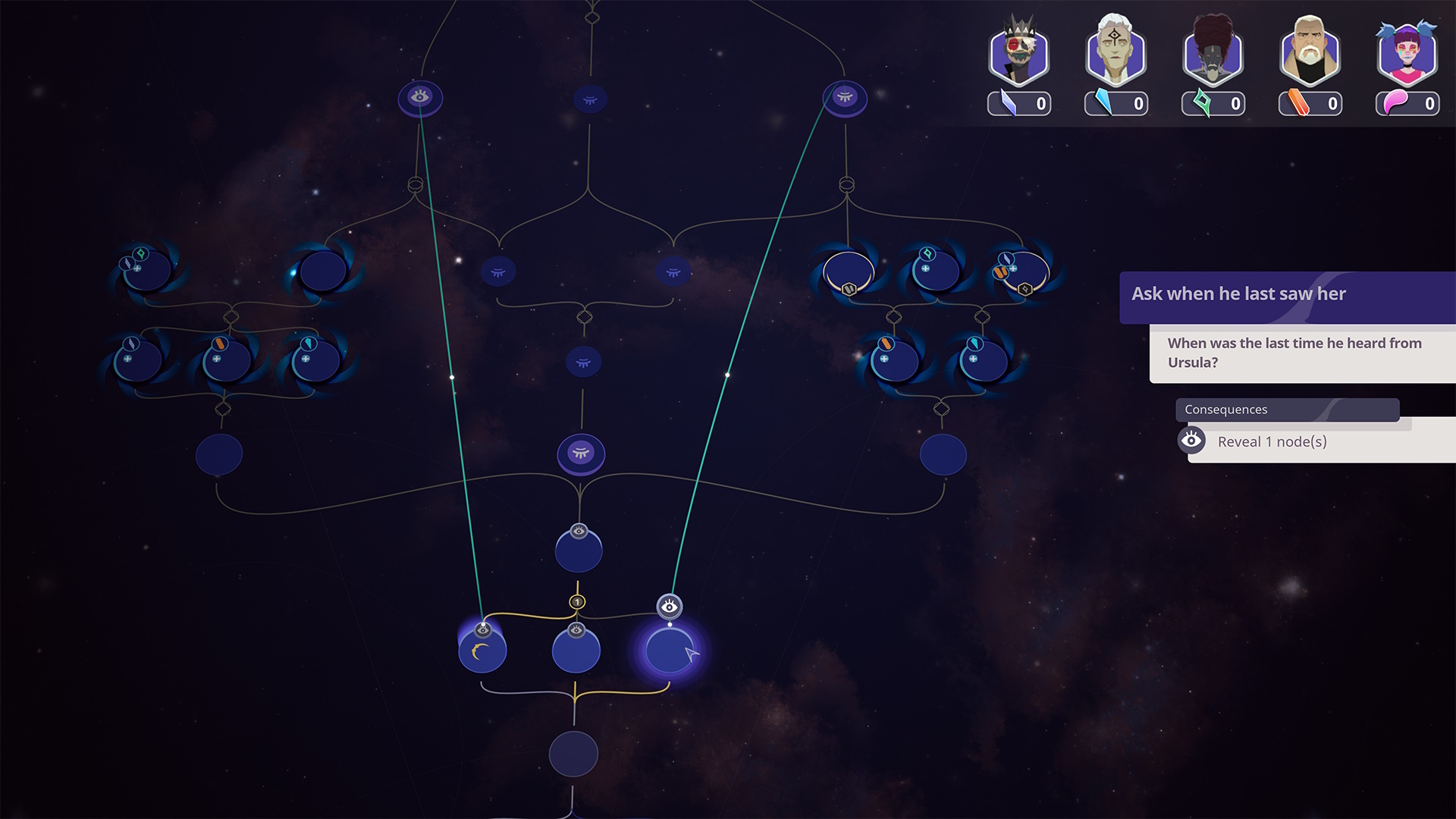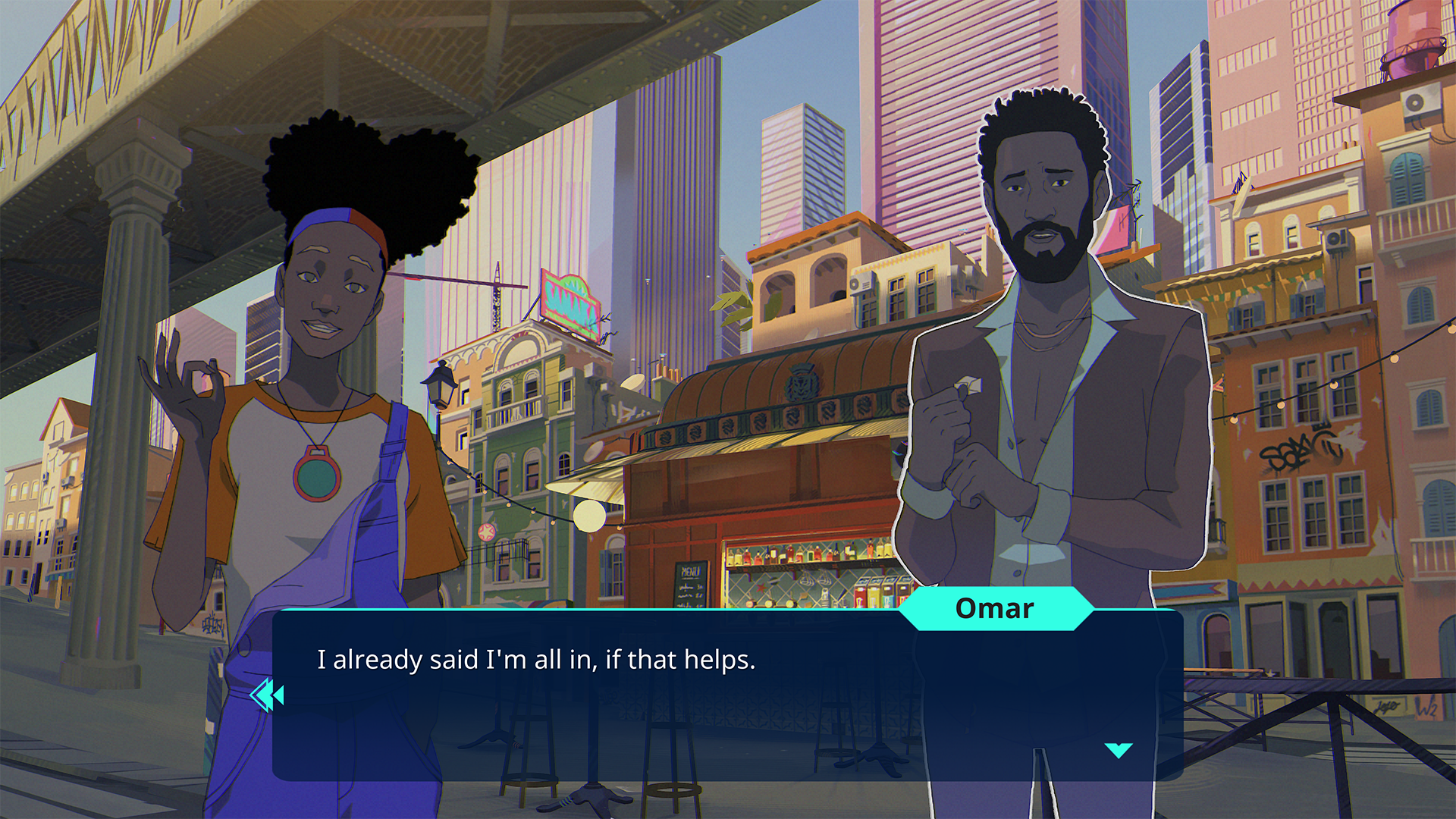Harmony: The Fall of Reverie rests the fate of two worlds on a reluctant clairvoyant
Developer Don't Nod turns the personal into the cataclysmic

Functionally, Harmony: The Fall of Reverie is a game about choices. While plenty of narrative adventures can claim the same, few have so fully committed to the subject in the way that developer Don't Nod has done here. The bones of a story-driven flowchart are visible to all, but the metaphorical muscles, organs, and skin of the game’s setting, characters, and conceit dress it up into something much more compelling than that.
I’ve been playing the first couple of chapters of Harmony: The Fall of Reverie ahead of its demo release today, May 4, on PC via Steam. The first trailer for the title caught and held my attention, and Don't Nod's back catalog is full of intriguing titles – not least Life Is Strange and Vampyr – even if I’ve never actually played any myself. This is all to say, I began my time with Harmony: The Fall of Reverie full of optimistic curiosity if not familiarity.
Looking ahead

While it should not be surprising to learn, it is worth stressing that it's important to read and learn about the world and characters of Harmony: The Fall of Reverie when given the chance. The start of the game drops players into the deep end, shifting from the return of protagonist Polly to her Mediterranean island hometown, to the mystery of her missing mother, to her sudden and inexplicable ability to talk with gods – called Aspirations of Humanity – in a realm connected to but separate from our own called Reverie.
In addition to the conversations between characters that underpin how the game functions, a Codex packed with details on people, places, and other important events can be viewed throughout. In the middle of a conversation with a character and can’t recall the context of a specific reference? Just go give yourself a refresher – the chat can wait. At least in the portion I played, no response was timed, and the game seemingly encourages you to take all the time you need.

Mechanically, it emphasizes this through the Augural, which is essentially a series of choices laid out like a board with different flashpoints. Polly’s ability to see a bit of the future, though not all of it, means that players have a general idea of what to work toward and what resources it’ll require to get a specific outcome. Some of these are immediately visible regardless of how many choices are lined up in front of them while others are only revealed when specific choices are made.
So, for example, you might pick between agreeing with a character about how to move forward; or disagree, and those choices might then reveal specific choices further down the path while also locking or unlocking others. Add to this that certain choices align more closely with different Aspirations and grant resources specific to them which are required to unlock other choices or outcomes and things get complicated quickly. That’s not even getting to the inevitable choices, which are required to be taken if unlocked, that can throw a wrench into any carefully laid plans.

It’s kind of fascinating to watch play out, even if I’m not entirely sure that it works. With a couple hours under my belt, I still feel like I’ve only just scratched the surface of Harmony: The Fall of Reverie. The deal with Polly’s mother and the mysterious corporation seemingly at the middle of everything is very much unresolved with the meaning behind the Aspirations like Bliss, Power, and Bond even more of a question mark. Reverie’s unwell, and Polly (Harmony?) is required to set things right again, and specifically championing certain Aspirations will shift all of humanity in some fundamental way.
Weekly digests, tales from the communities you love, and more
It feels like a big responsibility. One I still don’t fully understand, the hows and the whys and the wheres. In some ways, I actually think that’s kind of the point, at least this early on. But it’s a colorful, supernatural world with compelling characters and a narrative conceit that seems straightforward but isn’t. I might not yet see the full scope of Harmony: The Fall of Reverie, but what little foresight I have has only made me more curious.
Harmony: The Fall of Reverie is set to release for PC via Steam and Nintendo Switch on June 8. It will also release for PlayStation 5 and Xbox Series X|S on June 22. A free Steam demo is available from May 4 through May 8 as part of LudoNarraCon.
If you are curious about games like Harmony: The Fall of Reverie, you might be interested in checking out some of the best visual novels.

Rollin is the US Managing Editor at GamesRadar+. With over 16 years of online journalism experience, Rollin has helped provide coverage of gaming and entertainment for brands like IGN, Inverse, ComicBook.com, and more. While he has approximate knowledge of many things, his work often has a focus on RPGs and animation in addition to franchises like Pokemon and Dragon Age. In his spare time, Rollin likes to import Valkyria Chronicles merch and watch anime.


